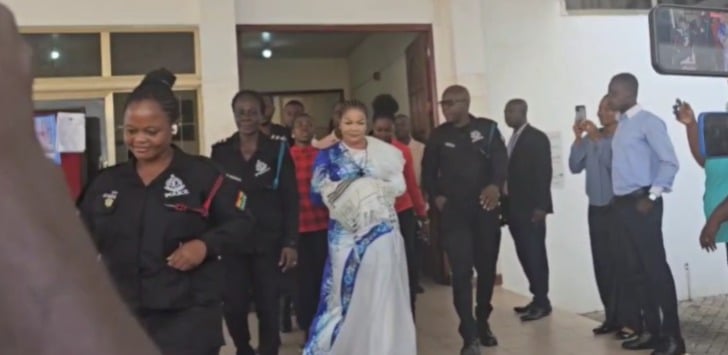Controversial televangelist and former traditional priestess Patricia Asiedua, popularly known as Nana Agradaa, has been sentenced to 15 years imprisonment with hard labour after being found guilty on three counts of defrauding by false pretenses and charlatanic advertisement.
The verdict, handed down Thursday afternoon, has ignited a national conversation — not just about the sentence itself, but about what the law actually says and who else it could potentially apply to.
What Is Defrauding by False Pretence?
Under Ghana’s Criminal Offences Act, a person commits defrauding by false pretence when they intentionally deceive someone with a false claim or impersonation, causing that person to part with money, property, or other assets.

In plain terms: If you knowingly lie to gain someone’s trust and they act on that lie to their own loss you’ve likely broken the law.
In Agradaa’s case, the court found that she misled members of the public, largely through her now-infamous “money doubling” scheme, convincing people to send her money with promises of supernatural returns. She also faced charges for charlatanic advertisement, which criminalizes the use of deceptive spiritual claims to defraud people.

Who Else Could Be Affected?
Legal analysts suggest the implications may stretch well beyond religious circles. Social commentator and political activist, Oliver Barker-Vormawor, has questioned whether politicians, both current and former, could face similar scrutiny for campaign promises and declarations they knew they couldn’t fulfill.

“If 10-15 politicians went to jail every year for 20-25 years. That’s what will truly reset the system. What is good for Agradaa is good for lightening “
Public Reaction: Justice or Overreach?
The ruling has sparked divided public opinion. While some see the sentencing as a strong deterrent against religious scams and exploitation, others argue it’s too harsh — especially in a country where political corruption often goes unpunished.
On the streets, everyday Ghanaians had their say: “If you’re dealing with licensed financial institutions, you can be rest assured. But when someone sits on TV and asks you to send them money with the promise of doubling it — that’s a scam. No reasonable person should fall for that,” a vendor said.

“If someone invites you only to extract money from you, that’s outright thievery,” said Mama Grace, a trader at Makola.
“Agradaa is not the only one. What about pastors selling oil and handkerchiefs for hundreds of cedis? They should be held accountable too,” another market woman added.
Could Agradaa Appeal the Sentence?
Her legal team has signaled a possible appeal, arguing that the 15-year sentence is disproportionate.
Private legal practitioner, Lawyer Christian Malm Hesse, weighed in: “Although the law allows for up to 25 years, if the sentence is seen as excessive or the balance of justice not served, her lawyers may petition the court to review and reduce the term,” he said.
Final Thoughts
As the debate rages on, one thing is clear: the law on defrauding by false pretence is powerful and far-reaching. Anyone — from spiritual leaders to public officials — who misleads people for personal gain could find themselves in similar trouble.
Is the sentence fair? Should others — including politicians and religious leaders — be held to the same standard?













